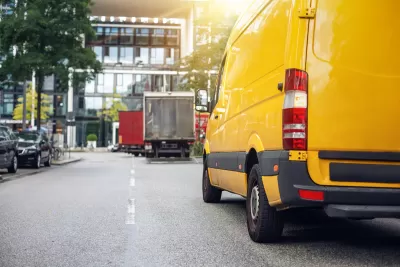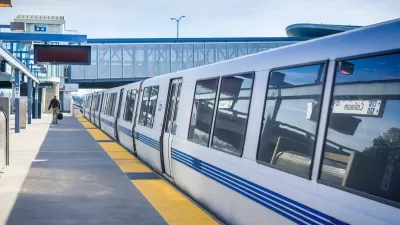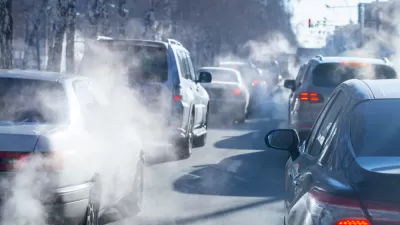As the popularity of delivery services grows, regulation and tech can address pollution challenges and limit congestion.

An article by Ysabelle Kempe in Smart Cities Dive highlights the efforts of eight cities and one county to reduce emissions from delivery services as part of a zero-emissions delivery challenge launched by Climate Mayors, C40, and the Los Angeles Cleantech Incubator with funding from Wells Fargo.
According to the National League of Cities, demand for delivery services could drive up emissions by 32 percent, prompting cities to assess ways to limit pollution, which often disproportionately affects low-income communities near distribution centers.
In Santa Monica, California, only clean delivery vehicles can enter a ‘zero-emissions delivery zone’ in the city’s center. New York City wants to move more freight to its rivers to reduce traffic on local roads, while “Washington, D.C., plans to leverage the support of the cohort to create a delivery microhub that supports more sustainable last-mile delivery modes, such as e-cargo bikes.” Other strategies include deliveries at off-peak hours and stricter curb management regulations.
As Kempe explains, “Through the zero-emissions delivery challenge, cities will identify innovative startup and corporate solutions to try. On top of getting access to funding for select startup solutions, participating cities will receive technical support, data analysis, peer-to-peer learnings and meetings with existing private sector delivery companies.”
FULL STORY: Delivery has a pollution problem. These cities are working to address it.

Planetizen Federal Action Tracker
A weekly monitor of how Trump’s orders and actions are impacting planners and planning in America.

San Francisco's School District Spent $105M To Build Affordable Housing for Teachers — And That's Just the Beginning
SFUSD joins a growing list of school districts using their land holdings to address housing affordability challenges faced by their own employees.

The Tiny, Adorable $7,000 Car Turning Japan Onto EVs
The single seat Mibot charges from a regular plug as quickly as an iPad, and is about half the price of an average EV.

With Protected Lanes, 460% More People Commute by Bike
For those needing more ammo, more data proving what we already knew is here.

In More Metros Than You’d Think, Suburbs are Now More Expensive Than the City
If you're moving to the burbs to save on square footage, data shows you should think again.

The States Losing Rural Delivery Rooms at an Alarming Pace
In some states, as few as 9% of rural hospitals still deliver babies. As a result, rising pre-term births, no adequate pre-term care and "harrowing" close calls are a growing reality.
Urban Design for Planners 1: Software Tools
This six-course series explores essential urban design concepts using open source software and equips planners with the tools they need to participate fully in the urban design process.
Planning for Universal Design
Learn the tools for implementing Universal Design in planning regulations.
Smith Gee Studio
City of Charlotte
City of Camden Redevelopment Agency
City of Astoria
Transportation Research & Education Center (TREC) at Portland State University
US High Speed Rail Association
City of Camden Redevelopment Agency
Municipality of Princeton (NJ)





























